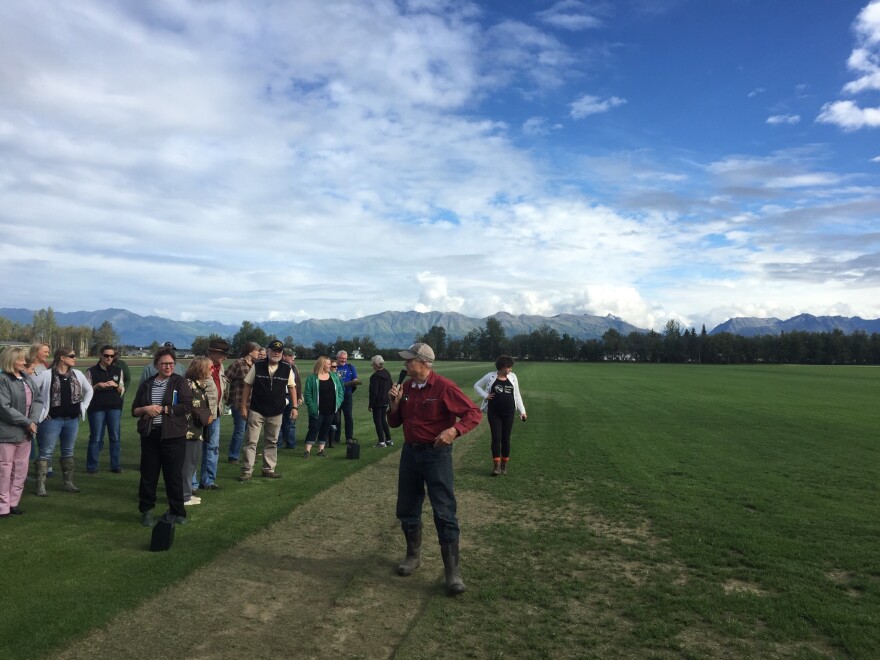With the growth of agriculture on the Kenai Peninsula, the next opportunity could be agritourism. Margaret Adsit, founder of Alaska Farm Tours in Palmer, was in Soldotna Thursday to give local growers some insight into another way to get people to their products.
No matter where you go in the world, if you want to learn about a culture, start with the food. That’s a guiding principle behind Margaret Adsit’s operation in the Mat-Su Valley.
“At the very core of putting together agritourism packages is your story. Talking about the story of why you care. What is your relevancy? Why do you exist? What is unique and special about you and what does that do to sort of enhance the culture you live in. How do you become more Alaskan by the work that you do?”
Agritourism is loosely defined as pretty much anything that gets a visitor onto your farm. From there, the options are limited only by imagination and capital in terms of what those visitors will do. It might simply be a bed and breakfast on the property, or a package where city folk are put to work during harvest time.
Adsit says even the most common aspects of an Alaskan agriculture business can be the most interesting part of a trip for someone from Outside. On one of her first tours of a farm in Palmer, she quickly learned that a stinky old pile of compost was a source of great fascination.
“Then the first time I took a tour out, they were like ‘what is this?’ (I said) ‘oh, that’s a compost pile. They have a three pile system. They rotate it.’ And we spent a majority of the time on that farm talking about the compost. So you don’t know what’s going to be the thing. If you heat your greenhouse with a wood stove, that will blow people’s minds. So things, again, that we consider mundane and average, really are unique."
She says the two main groups of travelers, Baby Boomers and Millenials, are often looking for the same experiences, just maybe presented in different ways.
“Probably the most redeeming part of the Millenial culture is that they don’t want the same bread and jam. They don’t want to go on a cruise ship and have the same experience they could have on any cruise ship around the world. They are traveling to experience a localized culture. A really great component of that is that 69 percent of them say they travel where they travel because of local food. Baby Boomers, they’re my favorites. A lot of them travel for family reasons, so they want to do multi-generational family travel. They have bucket lists. Alaska is a bucket list location. This is ubiquitous across the world, whether they’re coming from Germany or Australia...they are traveling to have cultural experiences. They want to understand that local experience, and what is more local than the food culture of that local region?”
Adsit says the best part of giving these kinds of tours is how quickly a small group of visitors can become almost like family.
“It’s just as much about them telling me about their relationship with food, with agriculture, with stories about farming in their background, as it is about me telling the story about Alaska agriculture. And you realize that growing food and being able to feed yourself and coming together and breaking bread at the table is a universal human experience. And it does not matter where you are from, what your political, your religious beliefs are, that is the essence of being human.”

